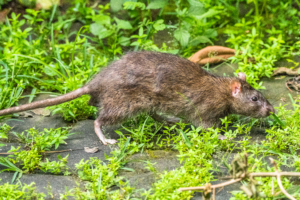
Discovering a field mouse in your house can be unsettling. These small, agile creatures are known for their ability to squeeze through tiny openings, making them a common household pest. While field mice are generally harmless, they can cause significant damage to your property and pose health risks to your family. In this blog post, we’ll explore effective solutions for dealing with a field mouse in the house, focusing on prevention, removal, and long-term pest control strategies.
Understanding Field Mice
Before diving into solutions, it’s essential to understand what you’re dealing with. Field mice, also known as meadow voles, are small rodents that typically live in fields, gardens, and grassy areas. They are attracted to homes during colder months when food sources become scarce outdoors. Field mice are excellent climbers and can easily find their way into your home through gaps in walls, roofs, or foundations.
Signs Of A Field Mouse Infestation
Identifying a field mouse infestation early is crucial for effective pest control. Here are some common signs to look out for:
- Droppings: Field mouse droppings are small, dark, and pellet-shaped. You may find them in cabinets, drawers, or along baseboards.
- Gnaw Marks: Field mice have strong teeth and will gnaw on wood, plastic, and even electrical wiring. Look for chew marks on furniture, food packaging, or walls.
- Nests: Field mice build nests using shredded paper, fabric, or insulation. These nests are often hidden in secluded areas like attics, basements, or behind appliances.
- Scratching Noises: If you hear scratching or scurrying sounds in your walls or ceilings, it could be a sign of field mice.
- Unusual Pet Behavior: Cats and dogs may become unusually alert or fixated on certain areas if they sense a mouse.
What To Do About A Field Mouse In The House
If you’ve confirmed the presence of a field mouse in your home, it’s time to take action. Here’s a step-by-step guide to effectively address the problem:
1. Seal Entry Points
The first step in dealing with a field mouse infestation is to prevent more mice from entering your home. Field mice can squeeze through openings as small as a dime, so it’s essential to inspect your home thoroughly for potential entry points.
- Inspect the Exterior: Check the exterior of your home for cracks, gaps, or holes. Pay close attention to areas where utility lines enter the house, as these are common entry points for mice.
- Seal Gaps: Use caulk, steel wool, or hardware cloth to seal any gaps or holes you find. Focus on areas around doors, windows, and the foundation.
- Install Door Sweeps: Ensure that all exterior doors have tight-fitting door sweeps to prevent mice from slipping underneath.
2. Remove Food Sources
Field mice are attracted to food, so eliminating access to food sources is crucial for keeping them out of your home.
- Store Food Properly: Keep all food, including pet food, in airtight containers. Avoid leaving food out on countertops or in open bags.
- Clean Up Crumbs: Regularly clean your kitchen and dining areas to remove crumbs and spills. Pay special attention to hard-to-reach areas like under appliances.
- Secure Trash: Use trash cans with tight-fitting lids and empty them regularly. Avoid leaving garbage bags outside for extended periods.
3. Set Traps
Trapping is one of the most effective ways to remove field mice from your home. There are several types of traps available, each with its own advantages.
- Snap Traps: These traditional traps are highly effective and kill mice instantly. Place them along walls or in areas where you’ve noticed mouse activity. Bait the traps with peanut butter, cheese, or chocolate for the best results.
- Live Traps: If you prefer a humane approach, live traps allow you to catch mice without harming them. Once caught, release the mice at least a mile away from your home to prevent them from returning.
- Glue Traps: Glue traps are another option, but they are less humane as they can cause prolonged suffering for the mouse. Use these with caution and check them regularly.
4. Use Natural Repellents
If you’re looking for a non-lethal way to deter field mice, natural repellents can be an effective solution.
- Peppermint Oil: Field mice dislike the strong scent of peppermint oil. Soak cotton balls in peppermint oil and place them in areas where you’ve seen mouse activity.
- Ultrasonic Repellents: These devices emit high-frequency sounds that are unpleasant for mice but inaudible to humans. Place ultrasonic repellents in areas where mice are active to drive them away.
- Predator Urine: The scent of predator urine, such as that from cats or foxes, can deter field mice. You can purchase predator urine online or at garden stores and apply it around your home’s perimeter.
5. Clean And Disinfect
Once you’ve removed the field mice from your home, it’s essential to clean and disinfect the affected areas to eliminate any lingering odors or bacteria.
- Remove Droppings: Wear gloves and a mask to safely remove mouse droppings. Use a damp cloth or paper towel to pick up the droppings and dispose of them in a sealed plastic bag.
- Disinfect Surfaces: Clean surfaces with a disinfectant to kill any bacteria or viruses that may have been left behind by the mice. Pay special attention to areas where droppings were found.
- Wash Fabrics: If mice have nested in fabrics like curtains or bedding, wash them in hot water to kill any bacteria or parasites.
6. Monitor For Reinfestation
After addressing a field mouse infestation, it’s important to monitor your home for signs of reinfestation.
- Regular Inspections: Conduct regular inspections of your home, especially in areas where mice are likely to enter. Look for new droppings, gnaw marks, or nests.
- Maintain Cleanliness: Continue to keep your home clean and free of food sources that could attract mice.
- Reapply Repellents: If you’re using natural repellents like peppermint oil, reapply them regularly to maintain their effectiveness.
When To Call A Professional
While DIY methods can be effective for dealing with a field mouse in the house, there are situations where professional pest control services may be necessary.
- Large Infestations: If you’re dealing with a large number of mice, it may be challenging to eliminate them on your own. A professional pest control company can assess the situation and implement a comprehensive treatment plan.
- Recurring Infestations: If you’ve tried multiple methods and the mice keep coming back, it’s time to call in the experts. They can identify and address the root cause of the infestation.
- Health Concerns: Mice can carry diseases and parasites that pose health risks to your family. If you’re concerned about the potential health hazards, a professional can safely remove the mice and disinfect your home.
Long-Term Prevention Strategies
Preventing future field mouse infestations requires a proactive approach. Here are some long-term strategies to keep your home mouse-free:
1. Maintain Your Yard
Field mice are attracted to overgrown vegetation and clutter, which provide them with shelter and food. Keeping your yard well-maintained can help deter mice from entering your home.
- Trim Vegetation: Keep grass, shrubs, and trees trimmed away from your home’s exterior. This eliminates potential hiding spots for mice.
- Remove Debris: Clear away piles of leaves, wood, or other debris that could serve as nesting sites.
- Store Firewood Properly: If you have firewood, store it at least 20 feet away from your home and elevate it off the ground.
2. Install Screens And Vents
Field mice can enter your home through unscreened vents or chimneys. Installing screens or covers can help keep them out.
- Vent Covers: Install mesh screens over vents, including those for your dryer, attic, and crawl spaces.
- Chimney Caps: Use a chimney cap to prevent mice from entering through your chimney.
- Window Screens: Ensure that all windows have tight-fitting screens without holes or tears.
3. Regular Home Maintenance
Regular home maintenance can help identify and address potential entry points before mice can exploit them.
- Inspect Your Home: Conduct regular inspections of your home’s exterior and interior for signs of wear and tear that could create entry points.
- Repair Damage: Promptly repair any damage to your home’s structure, such as cracks in the foundation or holes in the roof.
- Check Weather Stripping: Ensure that doors and windows have proper weather stripping to prevent gaps that mice could use to enter.
4. Educate Your Family
Preventing field mice from entering your home is a team effort. Educate your family on the importance of maintaining a clean and mouse-free environment.
- Proper Food Storage: Teach family members to store food properly and clean up spills immediately.
- Report Signs of Mice: Encourage everyone to report any signs of mice, such as droppings or scratching noises, so you can address the issue promptly.
- Avoid Clutter: Keep common areas, such as living rooms and basements, free of clutter that could provide hiding spots for mice.
Conclusion
Dealing with a field mouse in the house can be a challenging experience, but with the right approach, you can effectively eliminate the problem and prevent future infestations. By sealing entry points, removing food sources, setting traps, and using natural repellents, you can take control of the situation and protect your home from these unwanted guests.
Remember, prevention is key. Regular home maintenance, yard care, and family education can go a long way in keeping field mice at bay. If you find yourself overwhelmed or dealing with a persistent infestation, don’t hesitate to call a professional pest control service for assistance.
At Solutions Pest Control, we’re here to help you maintain a safe and pest-free home. Whether you’re dealing with a field mouse or any other pest problem, our team of experts is ready to provide effective solutions tailored to your needs. Contact us today to learn more about our services and how we can help you achieve a pest-free environment.


